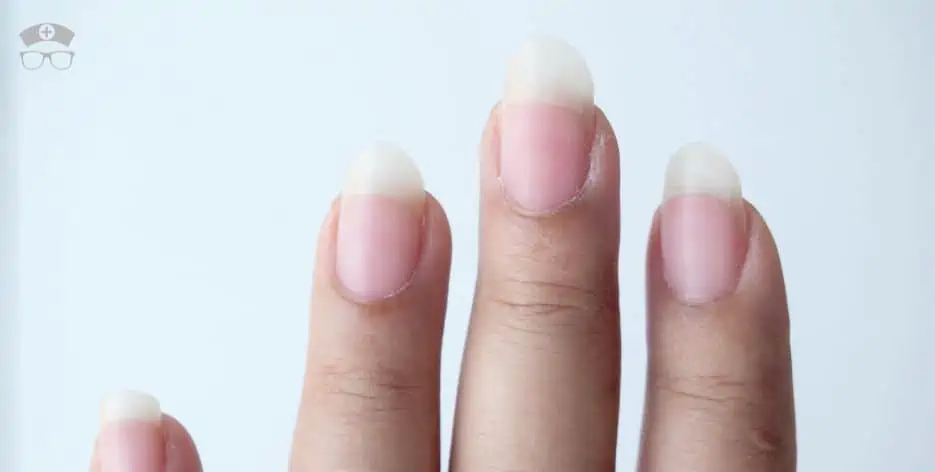As a nurse, you are constantly using your hands. Whether interacting with patients, checking their vitals, or administering medication, your hands are always in use. That’s why many feel it is important to have short nails when working. However, some wonder, should nurses have long nails? Long nails can get in the way and make it difficult to do your job properly. They can also harbor bacteria that can potentially infect patients.
For some individuals, the question of whether or not nurses should have longer nails is controversial. Some argue that lengthy nails are unsanitary and can harbor bacteria.
In contrast, others believe that if they are kept clean, there is no harm in having them. So, what is the verdict? Let’s take a closer look at the pros and cons of nurses having lengthy nails.
The Pros of Long Nails for Nurses
As hard as it sounds, having long nails as a nurse has pros and cons. Let’s see what the pros of having long nails are:
They can be used to help open medication packets: If you have ever tried to open a medication packet with short nails, you know how difficult it can be. Long nails can be quite helpful in this regard. You will be able to easily tear open the packets without having to struggle.
They can provide extra support when performing tasks that require delicate dexterity: Tasks such as starting an IV or removing a splinter can be difficult to do with short nails. The extra length can provide the support you need to get a good grip and perform the task more effectively.
They can make it easier to push buttons on medical equipment: Nurses often have to push small buttons on various types of medical equipment. This cannot be easy to do with short nails. However, long fingernails can make it much easier to push the buttons and get the job done.
Style: Let’s be honest; longer nails look good. They can add a touch of style and class to your appearance. If you are looking to make a good impression, long nails can help you do that.
But it’s not a good idea to choose fashion instead of functionality. Even if long fingernails can help you with some of the tasks, they can make it difficult to do your job properly.
The Cons of Long Nails for Nurses
Now let’s see the real deal. Having long fingernails as a nurse has more cons than pros. Let’s see what the cons of having lengthy fingernails are:
They can be a breeding ground for bacteria: While nails can protect your fingers from bacteria, they can also be a breeding ground for bacteria if they’re not properly cleaned and maintained. It’s important to ensure that you’re regularly washing your hands and using hand sanitizer to prevent infection.
They can cause damage to patients: One of the dangers of having long nails is that they can cause harm to patients. If you’re not careful, those sharp tips could scratch or poke a patient’s skin, leading to an infection.
They can get in the way: Another downside to having longer fingernails is that they could get in the way while you’re trying to do your job. When you’re constantly washing patients or administering medications, those long claws could become soaked, making it difficult to grip items or open containers.
They can be a distraction: Having lengthy fingernails can be distracting—both for you and for patients. If you’re constantly fidgeting with your nails or worrying about them breaking, it could take away from the quality of care that you’re providing.
They’re not always allowed: In some hospitals or clinics, long nails are not allowed due to the risks they pose to patients. So before growing your nails, check with your employer first to see if there are any restrictions in place.
Not good for your hygiene: One of the most important things for nurses is maintaining good hygiene. Unfortunately, lengthy nails can make it difficult to do this. It’s hard to keep your nails clean when you’re constantly washing your hands or using gloves.
Long fingernails can cause cuts and scrapes: Lengthy nails for nurses is that they can cause cuts and scrapes. Nurses with longer nails are more likely to accidentally scratch themselves or their patients. This can lead to the spread of infection and the development of scars or other wounds.
Longer fingernails can be uncomfortable: Another con of longer fingernails for nurses is that they can be uncomfortable. Nurses with long nails may find it difficult to perform certain tasks, such as typing or writing. Additionally, longer fingernails can make it difficult to wear gloves, which are necessary for many nursing tasks.
They can be a hassle: Longer fingernails for nurses is that they can be a hassle. If you want to keep your fingernails long, you will need to trim them regularly and file them down. This can be time-consuming, and it is not always convenient.
Nails can spread coronavirus: The Covid-19 pandemic is not over fully yet. According to a study, having longer nails can help spread the coronavirus. The virus can stay under your nails for days, and if you scratch someone with your fingernails, the virus can enter their body through the scratches.
Fingernail Hygiene
Above are some of the pros and cons of having long fingernails as a nurse. But how do you maintain good nail hygiene? To help prevent the spread of germs and nail infections:
- Keep fingernails short and trim them often.
- Scrub the underside of fingernails with soap and water (or a nail brush) every time you wash your hands.
- Clean any nail grooming tools before use.
- In commercial settings such as nail salons, sterilize nail grooming tools before use.
- Avoid biting or chewing fingernails.
- Avoid cutting cuticles, as they act as barriers to preventing infection.
- Never rip or bite a hangnail. Instead, clip it with a clean, sanitized nail trimmer.
Conclusion
There are pros and cons when it comes to having longer fingernails as a nurse—it depends on what’s most important to you and what works best for you personally. If you are considering growing out your fingernails, make sure to weigh the pros and cons carefully before making a decision. The decision is yours, but hopefully, this article has given you something to think about.
Also Check Out
- 10 Nurse Hairstyles That Stay Put The Entire Shift
- 15 Time-Saving Makeup Tips All Female Nurses Need
- Dressing to Impress and How That Can Have a Huge Impact on Your Professional Career


